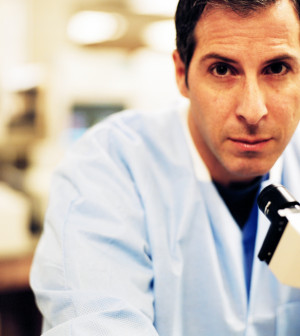- 7 Best Breads for Maintaining Stable Blood Sugar
- Gelatin vs. Collagen: Which is Best for Skin, Nails, and Joints?
- The Long-Term Effects of Daily Turmeric Supplements on Liver Health
- Could Your Grocery Store Meat Be Causing Recurring UTIs?
- Are You Making This Expensive Thermostat Error This Winter?
- Recognizing the Signs of Hypothyroidism
- 10 Strategies to Overcome Insomnia
- Could Artificial Sweeteners Be Aging the Brain Faster?
- Techniques for Soothing Your Nervous System
- Does the Water in Your House Smell Funny? Here’s Why
Many Breast Cancer Patients Still Opt for Mastectomy Over Lump Removal


Breast cancer surgeries have advanced so that surgeons can often remove the tumor while safely conserving the breast, in what’s known as lumpectomy.
But a new study shows that even though this breast-conserving surgery has a high success rate, many patients who are eligible for it still choose to have the entire breast removed.
“We don’t have an answer for why this is the case, but we hope that this work encourages more patients and clinicians to think about why this is happening and what we can do to address this,” lead researcher Dr. Mehra Golshan, director of Breast Surgical Services at Dana-Farber/Brigham and Women’s Cancer Center in Boston, said in Brigham and Women’s Hospital news release.
In the study, Golshan’s team focused on women with what’s known as triple-negative breast cancer. There are no approved targeted therapies to treat this type of breast cancer, but chemotherapy can shrink tumors so that less breast tissue needs to be removed during surgery, the researchers explained.
The study found that lumpectomy was successful in more than 90 percent of patients who were eligible for it after undergoing chemotherapy.
However, 31 percent of eligible patients still decided to have the entire breast removed, according to the study.
“In general, if possible, we try to offer breast-conserving therapy as a preferred option for women with early-stage breast cancer,” Golshan stressed.
“One of the reasons we use chemo first is to potentially allow women who originally needed to have the entire breast removed — because of more advanced disease — to now be eligible for breast-conserving therapy,” he explained. “We see, though, that a significant number of patients who were eligible still ended up deciding to have their breast removed.”
The study is scheduled for presentation Thursday at the annual meeting of the American Surgical Association in San Diego. Findings presented at medical meetings are typically considered preliminary until published in a peer-reviewed journal.
More information
The American Cancer Society has more about breast cancer surgery.
Source: HealthDay
Copyright © 2026 HealthDay. All rights reserved.










